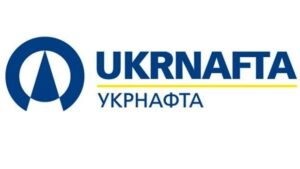
Ukraine has registered 31,513 new cases of COVID-19, as well as 27,684 recoveries and 310 related deaths, in the past 24 hours, the Ukrainian Health Ministry said on Wednesday.
“Over the past day, Ukraine has recorded 31,513 new cases of COVID-19, including 2,872 children and 992 medical workers, while 65,805 people have been vaccinated for COVID-19, among them 18,247 people who received the first dose, 29,307 who received the second dose, 542 who received an additional dose, and 17,709 who received a booster shot. In the past 24 hours, 3,640 people have been hospitalized, 310 have died, and 27,684 have recovered,” the ministry said on Telegram.
There were 29,724 new infections in Ukraine the day before.
Since the beginning of the pandemic, Ukraine has seen a total of 4,603,930 cases of COVID-19, including 3,839,314 recoveries and 103,565 deaths.
As many as 15,613,185 people have been vaccinated for COVID-19 in Ukraine to date.

From April 2022, Poland will change its visa operator in Ukraine – it will be the TLS consortium, consisting of five companies – TLS Group S.A., TLSContact Maroc Immeuble Walili, TLScontact Ukraine LLC, Personnel Service, Viza Staff.
Such data is contained in the materials of the Ministry of Foreign Affairs of Ukraine, provided in response to a deputy request from Olena Moshenets (Servant of the People), which is available to the Interfax-Ukraine agency.
“According to the Embassy of the Republic of Poland in Ukraine, on February 7, 2022, an agreement was concluded on the provision of visa services with a company determined as the winner based on the results of a tender for the selection of a visa operator. The start of work of a new visa operator is scheduled for April 2022,” the Foreign Ministry said in response at the request of an MP.
Prior to the start of the work of the new operator, the acceptance of documents will be carried out by VFS Global.
“The announcement of the launch of the new operator will be made public on the official web portal of the Polish diplomatic/consular institutions,” the ministry said.

Yalta European Strategy (YES) and the Victor Pinchuk Foundation will host the 5th Munich Ukrainian Lunch titled “Europe’s Security is Decided in Ukraine” on February 19 on the margins of the Munich Security Conference.
The press service of YES said that the discussion will explore the threats to Ukraine’s security and what they mean for Europe and the West.
Zanny Minton Beddoes, Editor-in-Chief of The Economist, will moderate the discussion with Anne Applebaum, historian and staff writer at The Atlantic, Ann Linde, Foreign Minister of Sweden, General James Mattis, former US Secretary of Defence and General David Petraeus, former Director of the Central Intelligence Agency of the United States.
Among the participants will also be: Mélanie Joly, Minister of Foreign Affairs, Canada; Peter Hultqvist, Minister for Defence of Sweden; Wolfgang Ischinger, Chairman, Munich Security Conference, member of YES Board; Jeppe Kofod, Minister for Foreign Affairs, Kingdom of Denmark; Ben Hodges, Pershing Chair, Center for European Policy Analysis, former Commanding General, U.S. Army Europe; Alina Mikhailova, SOS Army volunteer, Russian-Ukrainian war veteran; and Kurt Volker, Distinguished Fellow, CEPA.
On February 19 at 13:30 (Kyiv time), watch the online streaming of the Ukrainian Lunch in Munich.
MUNICH SECURITY CONFERENCE, PINCHUK FOUNDATION, UKRAINIAN LUNCH

NJSC Naftogaz Ukrainy has appointed Oleksandr Scherba as head of its Swiss subsidiary, Naftogaz Trading Europe S.A., instead of Willem Coppoolse.
The relevant notice was published in the Swiss press in early February.
Scherba, who served as Ambassador Extraordinary and Plenipotentiary of Ukraine to Austria from November 2014 to April 2021, joined Naftogaz in October last year as Chief Adviser to the CEO on international activities’ coordination.
Coppoolse completed his work at Naftogaz back in May 2021, where he was responsible for the trading direction, and since January 2022 he has been appointed director of the Energy Resources of Ukraine (ERU) group of companies.
As reported, Naftogaz resumed imports of natural gas in early February 2022.
Naftogaz Ukrainy unites the largest oil and gas producing enterprises of the country (100% of Ukrgazvydobuvannia and 50% plus 1 share of PJSC Ukrnafta). The Group also has a monopoly on natural gas storage in underground storage facilities (100% of Ukrtransgaz) and oil transportation by pipeline across the country (100% of Ukrtransnafta), and is actively developing gas supplies to household consumers.

The process of unbundling the assets of PJSC Ukrnafta between NJSC Naftogaz Ukrainy and minority shareholders has been put on hold for now, although it was planned to be completed at the end of 2021, businessman Ihor Kolomoisky has said.
“Yes, on a pause… Naftogaz faced the problem of public opinion, government, the like, they need to get permission for some significant transactions, and so on,” he said in an interview with Ukrayinska Pravda.
According to the businessman, Naftogaz was the initiator of the unbundling process, and he supported it.
“Since life together does not work out, it is necessary to separate intelligently and culturally,” he said.
Earlier, at the end of November, President of Ukraine Volodymyr Zelensky said that the unbundling of Ukrnafta did not take place, since the state did not yet have the necessary funds to buy the assets.
As reported, in November-December 2021, due to the lack of a quorum, two meetings were not held at which it was planned to consider the issue of unbundling Ukrnafta’s assets between NJSC Naftogaz Ukrainy and minority shareholders – Ihor Kolomoisky and his partners. Another meeting of shareholders with a similar agenda is scheduled for February 17, 2022.
Ukrnafta is the largest oil company in the country. NJSC Naftogaz Ukrainy owns 50% plus 1 share in Ukrnafta, a group of companies associated with the former shareholders of PrivatBank – about 42% of shares.

Ukrainian airports in January 2022, according to recent data, served almost 1.226 million passengers, which is 135.3% more than in the same month last year.
According to the website of the State Aviation Service of Ukraine, in international traffic, passenger traffic of airports increased by 143.8% in January of this year, to 1.103 million people.
Ukrainian airlines served 515,500 people during the reporting period (79.6% more). In particular, 458,600 people were transported in international traffic (81% more).
At the same time, in January of this year, the airlines operated 4,700 commercial flights (an increase of 51.6%), including 3,600 international ones (56.5% more).